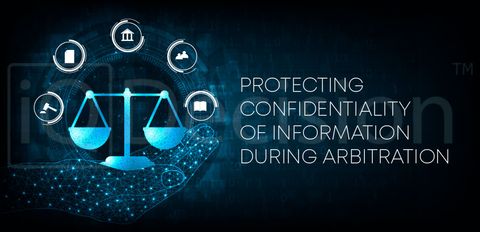Preventing data from being leaked or unintentionally disclosed during arbitration is the number one priority for arbitrators worldwide. Therefore, arbitrators or mediators are doing their best to ensure that confidentiality of the parties’ information is maintained at all times.
Taking confidentiality obligations to a whole new level is the number one challenge that arbitrators are facing today. Decades ago, data was stored on hard copies. Nowadays, information is stored on electronic media, which is why its transmission via the Internet or storage in the cloud have become a vital necessity for many companies. Therefore, to be able to use these technologies, corporate entities need to be sure that they’re provided with proper level of security.
When turning to mediators for resolving a dispute, companies want to be confident that their information will be protected from leakage. Recently, regulatory authorities worldwide have started to demand compliance with special cybersecurity requirements, which is why arbitrators & mediators should abide by both the code of their professional Conduct & various ethical codes.
Arbitrators & mediators may also be required to abide by data protection laws, such as HIPAA or GPDR. They should also keep in mind that private & public organizations in different countries may have their own requirements with regard to data protection.
Preventing Disclosure of Private Information
Unintentional disclosure of information or violation of confidentiality requirements during arbitration may lead to all kinds of adverse consequences for arbitrators. As customers are becoming more sensitive to disclosure of their private information, an arbitrator’s failure to take reasonable steps to ensure safety of personal data may result in:
- complaints being filed;
- imposition of sanctions by arbitration organizations;
- stripping of membership in arbitration organizations.
Ways of Protecting Sensitive Information
- Encrypting hard drives is one of the most effective ways of protecting sensitive data during litigation
- Avoid using USB sticks because they’re hard to encrypt & easy to lose
- Read notifications published on websites. Data in encrypted form goes to their servers & stays there like that. Quite a few websites include a special clause in their terms of use whereby they can use their visitors’ data for marketing purposes or sell it to other services.
- Including an arbitration clause also provides some kind of guarantee that your data will be safe. The parties can also agree between themselves on which sensitive data can be disclosed during arbitration & metdods of its protection. While deciding on data protection methods, they should take into account their need to use such information during arbitration proceedings, make it available to the court or exchange it between themselves if it is important or relevant to the proceedings.
- When exchanging information on CDs, the parties need to make sure that the CDs are password-protected & provide the passwords only on request.
- Consider partially or completely removing unwanted personal data (e.g. date of birth, social security number, medical info, etc.
- Make it a habit not to use public Wi-Fi hotspots
To sum up, there are many different ways of protecting information during arbitration & the arbitrator needs to decide for themselves which of them suit their needs best.
If you’re seeking to resolve an international dispute & have safety concerns with regard to your personal information, IQ Decision UK can put your mind at ease. Any consultations provided by our legal advisors are 100% confidential, so you may safely order one right now.

















